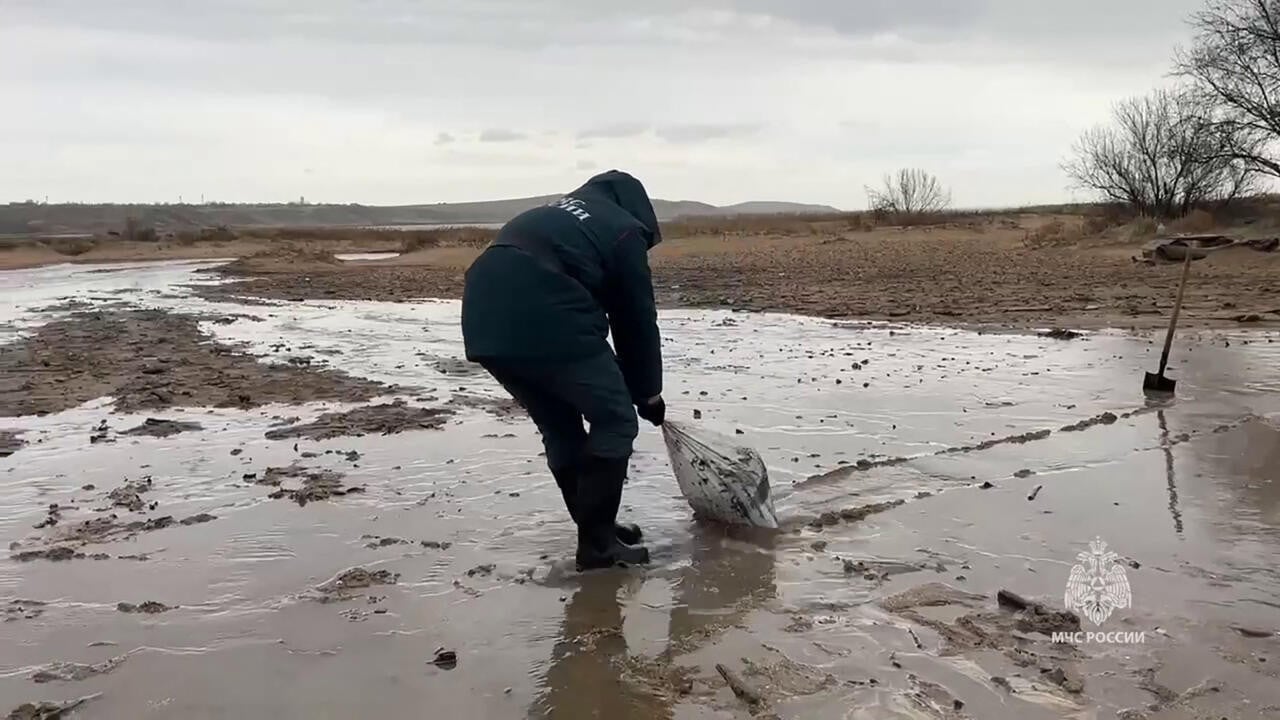
The oil spill in the Black Sea that has hit Russian and Crimean coasts since mid-December is particularly hard to clean up because it involves a "heavy" fuel that is less likely to float.
The Kerch Strait between Russia and the Moscow-annexed peninsula of Crimea was polluted after two Russian oil tankers sank during a storm on December 15, and the resulting spill is still spreading.
The two tankers were carrying some 9,200 tonnes of fuel oil and slightly more than a quarter of it is believed to have leaked into the sea, according to the latest estimates by Russian authorities.
Russia's maritime rescue service Morspassluzhba said the accident was the first in the world involving M100 grade "heavy" fuel oil.
This type of fuel "does not float on the surface" and "no proven technology exists in the world to eliminate it in water", the agency said. "That's why the main method is collection on the coast."
"Mazut (M100) is a trade name for a particular type of Heavy Fuel Oil (HFO) that is produced in Russia and Kazakhstan," said Rob James, senior vice-president Europe and Asia at Lamor, which specialises in oil and chemical pollution control.
HFOs are low-cost residual fuels produced by the distillation of crude oil in refineries and are typically used as fuel for large ships and industrial boilers, he told AFP.
According to the International Maritime Organization, approximately 62 percent of the 211 million tonnes of fuel used by ships in 2023 was classed as HFO. There are two types of oil: heavy fuel oils with almost tar-like consistencies and so-called "light" oils including diesel, petrol and kerosene.











1736409688-0/sidra--(51)1736409688-0-270x192.webp)

1736332856-0/Untitled-design-(20)1736332856-0-270x192.webp)


1736334465-0/sidra--(45)1736334465-0-270x192.webp)







COMMENTS
Comments are moderated and generally will be posted if they are on-topic and not abusive.
For more information, please see our Comments FAQ